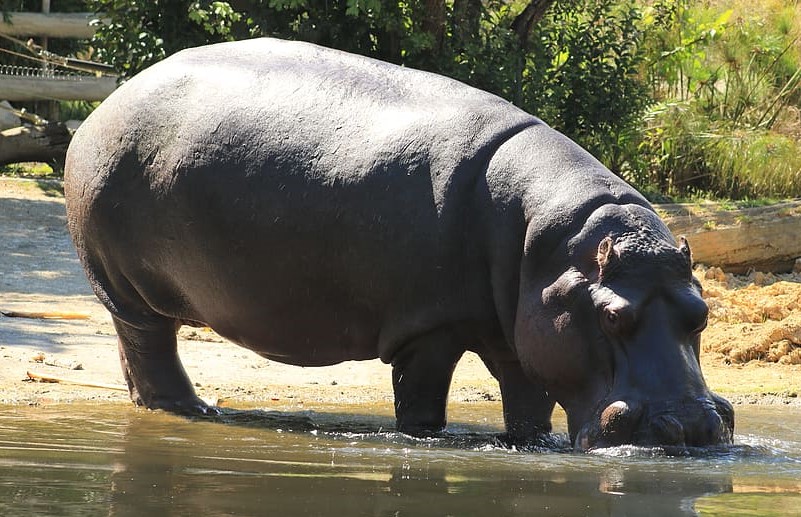He World Hippo Day 2024 It happens every year on February 15. This event was created with the aim of raising awareness of the importance of this enormous and dangerous ungulate for the ecosystem balance of the places where it lives.
Despite its large distribution area, this ungulate is protected in almost all of West and Central Africa. Yet his status in the IUCN Red List is vulnerable. In fact, the hippo’s meat and skin and the ivory from its teeth are highly sought after and the species has been the subject of significant poaching, which poses its greatest threat, along with deforestation.
World Hippo Day 2024: habitat and conflicts
The hippopotamus lives in the rivers, lakes and ponds of sub-Saharan Africa. The species occurs from Senegal to eastern and southern Africa. The world’s population is currently fragmented as a result deforestation, urbanization and road infrastructure. They usually consist of small subpopulations, which are extremely sensitive to disasters (droughts, floods, etc.), habitat reduction and genetic problems.


The hippopotamus causes local damage to crops, fishing boats and their nets, resulting in numerous conflicts with people. In addition, it is considered the most dangerous mammal in the world and the mammal that kills the most people in Africa every year. Data that is very important to take into account World Hippo Day 2024.
Hippos are fully protected by the Algiers (1969) and CITES (1990) Conventions. And in all sub-Saharan countries where it lives, trapping or hunting is strictly prohibited. Yet the poaching and death by revenge or ‘prevention’ remains a serious problem for the survival of this herbivore.
World Hippo Day 2024: customs
He World Hippo Day 2024 It is ideal to learn that this large herbivore is semi-aquatic and spends much of the day immersed in water and rests on the sandbanks of rivers. Avoid heavily wooded riverbanks and waters with strong currents. It is an excellent swimmer, can stay underwater for up to six minutes and can walk on the bottom. And he never relieves himself in the water.
The hippopotamus is very gregarious and territorial and lives in herds of 5 to 15 individuals, although much larger groups have been found. These consist of females and offspring that the males are attracted to based on their hierarchical position, within which the dominant males fiercely defend their territory.
The gestation period, which lasts about 235 days, normally results in the birth of a calf in water or on dry land. After giving birth, the female isolates herself from the herd for a few weeks and defends her calf against any possible attack, especially those from non-dominant male hippos. In the wild, the lifespan of hippos is approximately 40 years.
The hippopotamus is essentially herbivorous and can ingest up to 60 kg of food per day. It prefers creeping grass and other herbs that it picks with its lips. He really likes yams, potatoes, fresh corn, vegetables, etc. so he ventures into the plantations. The hippopotamus is very sensitive to light. He hates noise and noise, but he is excited and arouses his curiosity by certain types of music. Something you might learn today, the World Hippo Day 2024.
In times of drought, hippos can even go several weeks without eating thanks to the thick layer of fat they have under their skin and they do not waste energy because they remain completely motionless in the water or mud.
It is a species that does not tolerate polluted or dirty water. For this reason, rural populations use the waters in which these giants live as a source of drinking water. A curious fact that is important to know World Hippo Day 2024.
This herbivore has few predators besides lions, although Nile crocodiles sometimes prey on young that stray from their mother’s care. The forest fires Unchecked, they are a factor in the destruction of their habitat and their food.
When he is injured, his aggressiveness increases. This also applies to the need for forced migrations, usually caused by the low water levels of the rivers in which they live climate change. A problem that is of great importance World Hippo Day 2024.

